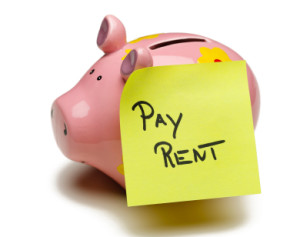 Today’s top story: Should you pay for credit repair? Also in the news: Tips on raising financially savvy kids, credit scores and dating, and why it might make sense to pay down debt slowly.
Today’s top story: Should you pay for credit repair? Also in the news: Tips on raising financially savvy kids, credit scores and dating, and why it might make sense to pay down debt slowly.
Should You Pay for Credit Repair?
The pros and cons.
11 Tips to Raise Financially Savvy Kids
Starting them off right.
Nearly 40% of Americans want to know your credit score before dating
Should credit worthiness determine date worthiness?
Why It Might Make Sense to Pay Down Debt Slowly
Slow and steady might win the race.
 Today’s top story: Clever strategies to fund your child’s college education. Also in the news: How to choose a qualified credit counselor, how the wage gap for women turns into a retirement gap, and how to protect yourself from ATM fraud.
Today’s top story: Clever strategies to fund your child’s college education. Also in the news: How to choose a qualified credit counselor, how the wage gap for women turns into a retirement gap, and how to protect yourself from ATM fraud. Today’s top story: How paying rent can affect your credit. Also in the news: How to protect yourself from cybercrime while banking with your phone, why you shouldn’t consider something “yours” until it’s completely paid off, and financial strategies for creative types without steady incomes.
Today’s top story: How paying rent can affect your credit. Also in the news: How to protect yourself from cybercrime while banking with your phone, why you shouldn’t consider something “yours” until it’s completely paid off, and financial strategies for creative types without steady incomes. Today’s top story: Buying credit and identity theft monitoring. Also in the news: Financial aid appeal tactics, why we’re still swiping our credit cards, and how to look at living on a budget as an opportunity.
Today’s top story: Buying credit and identity theft monitoring. Also in the news: Financial aid appeal tactics, why we’re still swiping our credit cards, and how to look at living on a budget as an opportunity.  Today’s top story: Understanding renters insurance. Also in the news: How many credit cards is too many, financial tips for military members making the transition to civilian life, and how your Health Savings Account can work like a super-IRA.
Today’s top story: Understanding renters insurance. Also in the news: How many credit cards is too many, financial tips for military members making the transition to civilian life, and how your Health Savings Account can work like a super-IRA.  Today’s top story: What adding 100 points to your credit score means for your finances. Also in the news: How to finance your dream home improvement projects, how your boss can help you reduce your student loan repayment timeline, and why you should be treating your income like you do your investments.
Today’s top story: What adding 100 points to your credit score means for your finances. Also in the news: How to finance your dream home improvement projects, how your boss can help you reduce your student loan repayment timeline, and why you should be treating your income like you do your investments.